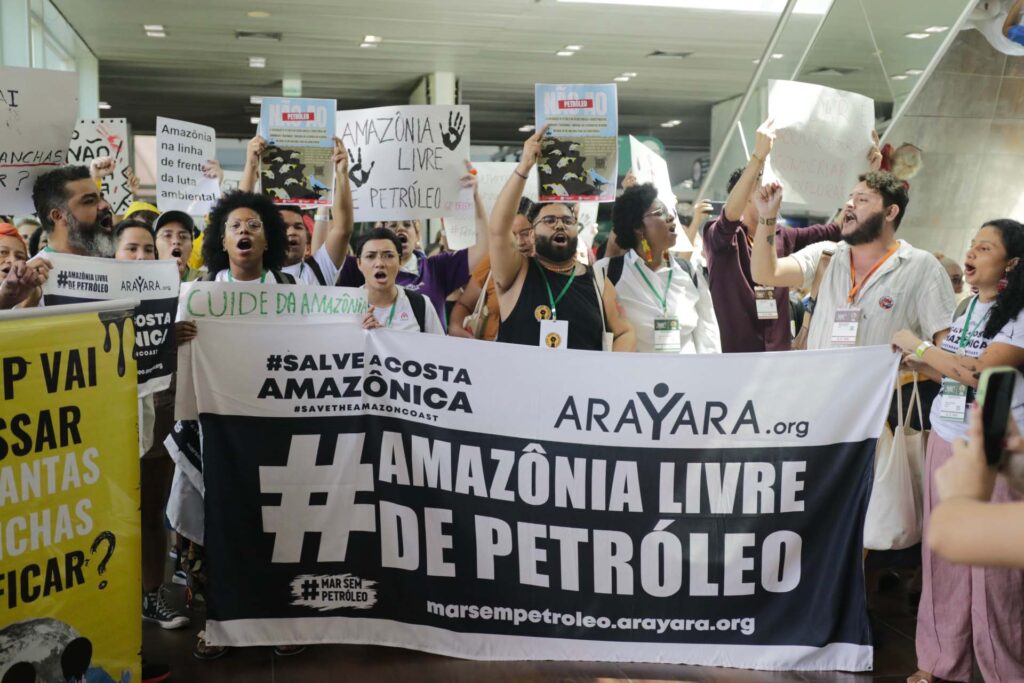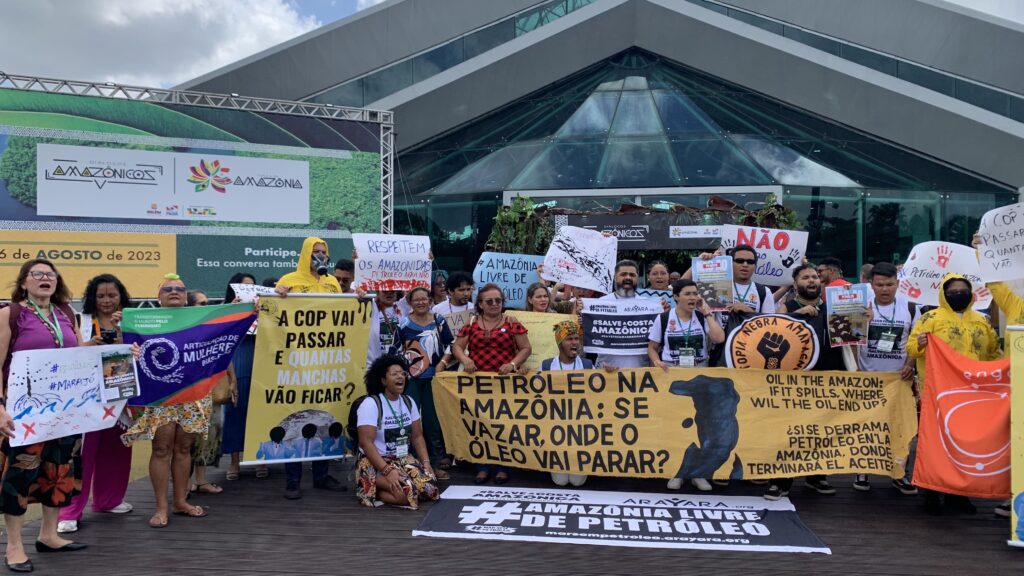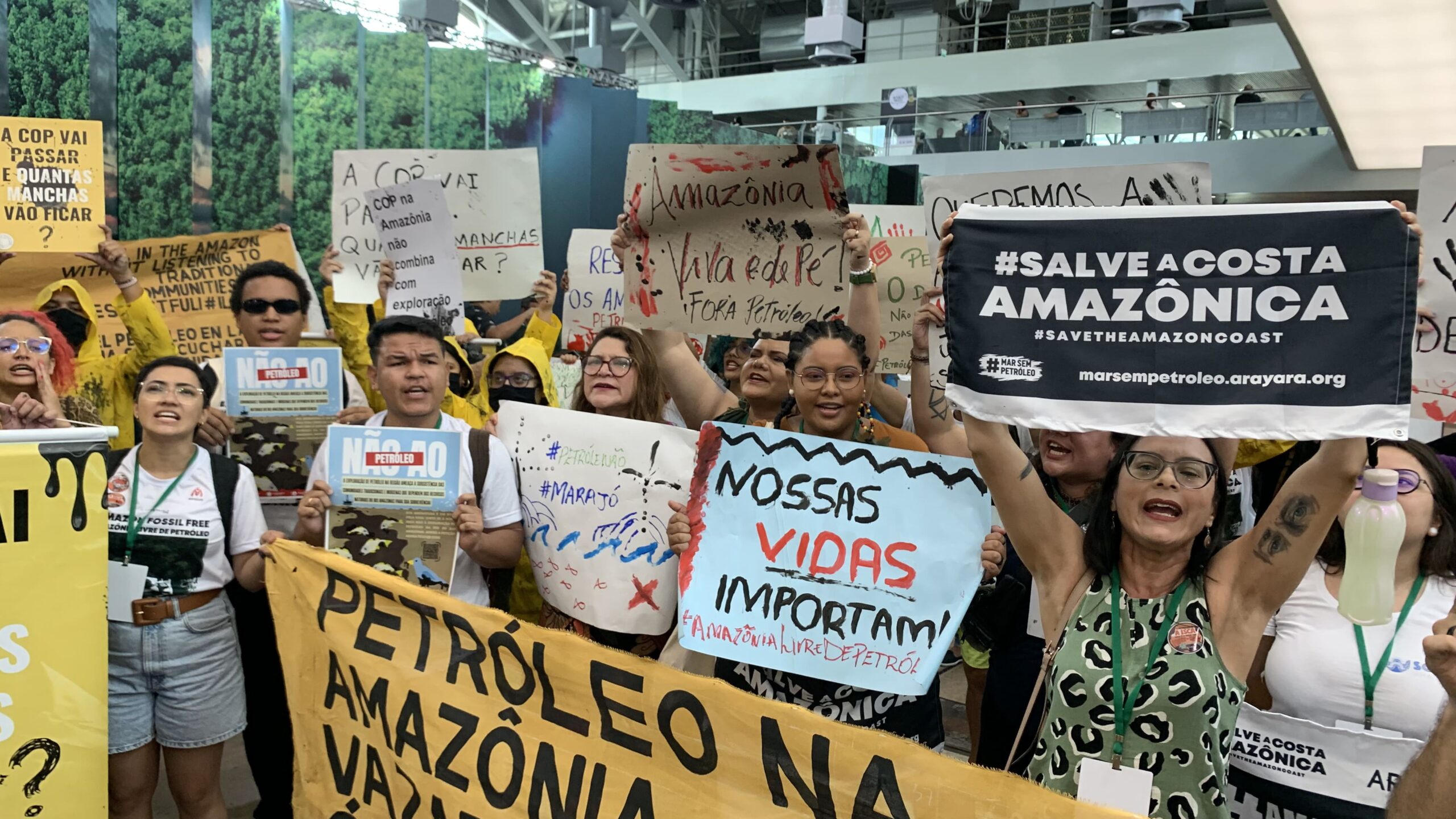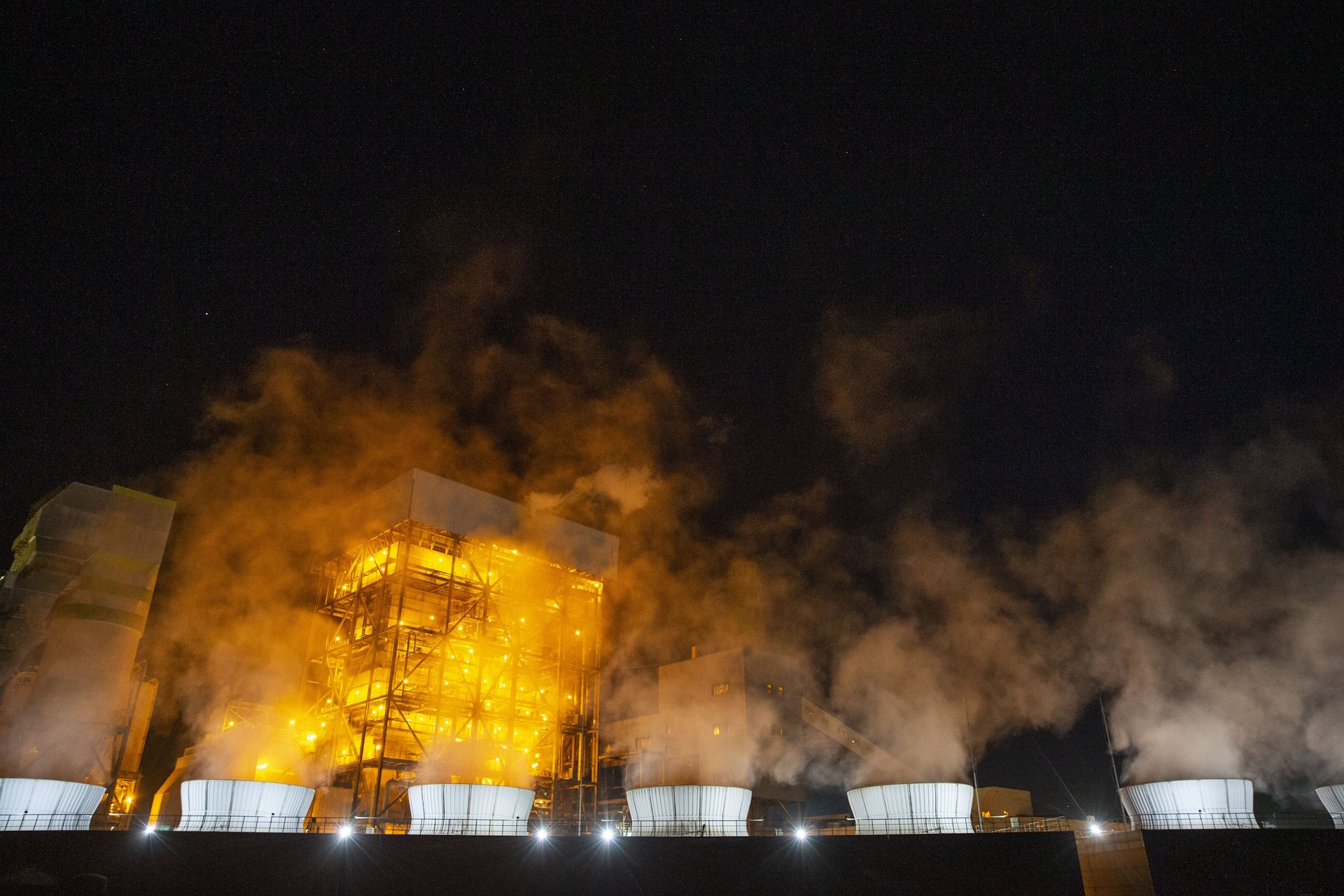Civil society, represented by traditional peoples of the Amazon and young climate activists, promote a wave of indignation during the event that preceded the Amazon Summit
From August 4 to 6, Belém (PA) hosted the “Amazon Dialogues”, an event that received more than 27 thousand people distributed in more than 400 activities, at the Hangar Convention Center of the city. The ARAYARA International Institute, a Brazilian organization with 30 years of experience, promoted a march and four events covering themes related to the protection of biome defenders (Escazú Agreement), the consequences of climate change in coastal regions and the advances of fossil fuels in the Amazon, on land and sea, including by unconventional methods, such as Fracking.
 Protesters during the March against Oil in the Amazon Dialogues (Photo: Renata Sembay – ARAYARA.ORG)
Protesters during the March against Oil in the Amazon Dialogues (Photo: Renata Sembay – ARAYARA.ORG)
To the cries of “Fish is with açaí and not with Oil, no to exploitation in my territory” a mobilization called “March Amazônia Livre de Petróleo #SalveaCostaAmazônica, Say No to Oil” marked the last day of the meeting. Among those who witnessed the act, in addition to all the public that passed through the spaces, were the Governor of Pará, Helder Barbalho, and the press, which days before echoed the speeches of President Lula regarding the possibility of exploration of the Brazilian Equatorial Margin.

Posters inside and outside the Hangar drew attention to the March against Oil in the Amazon (Photo: Renata Sembay – ARAYARA.ORG)
The march was an important moment of opposition due to the contradiction of narratives and promises of economic advancement with sustainability proposed by politicians and companies about the region, taking the message of Belém to the world and fostering speeches in the press conferences granted by the Ministers of Environment. In the background is the latent discussion of the new frontier coveted by the oil sector, the Amazon Coast, focus of attention of the world media and also of the campaign launched on the occasion, entitled “Save the Amazon Coast”.

Helder Barbalho is followed by March against Oil to Save the Biome and the Amazon Coast during Dialogues in Belém do Pará (Photo: Renata Sembay – ARAYARA.ORG)
As warned during the dialogues, one of the biggest threats to the preservation of the Amazon is the advance of oil and gas exploration. Even with the knowledge that, according to the IPCC, global greenhouse gas emissions must be reduced by 43% by 2030, the Amazon Summit fails in its final document released on August 9. Countries ignored many voices from the Amazon Dialogues and failed to agree on key issues, including the problem at the top of the global list of worsening climate crisis, fossil fuels.
Instead of continuing the escalation of production and supply of oil and gas blocks, Brazil should follow in the footsteps of Petro, the Colombian president who spoke about climate denialism during the Summit. It is necessary to promote the deceleration of these emissions in a just and planned transition, leveraging renewable energies with social participation and new technologies. A laborious process that requires political strength and that must go beyond fallacies and promises.












